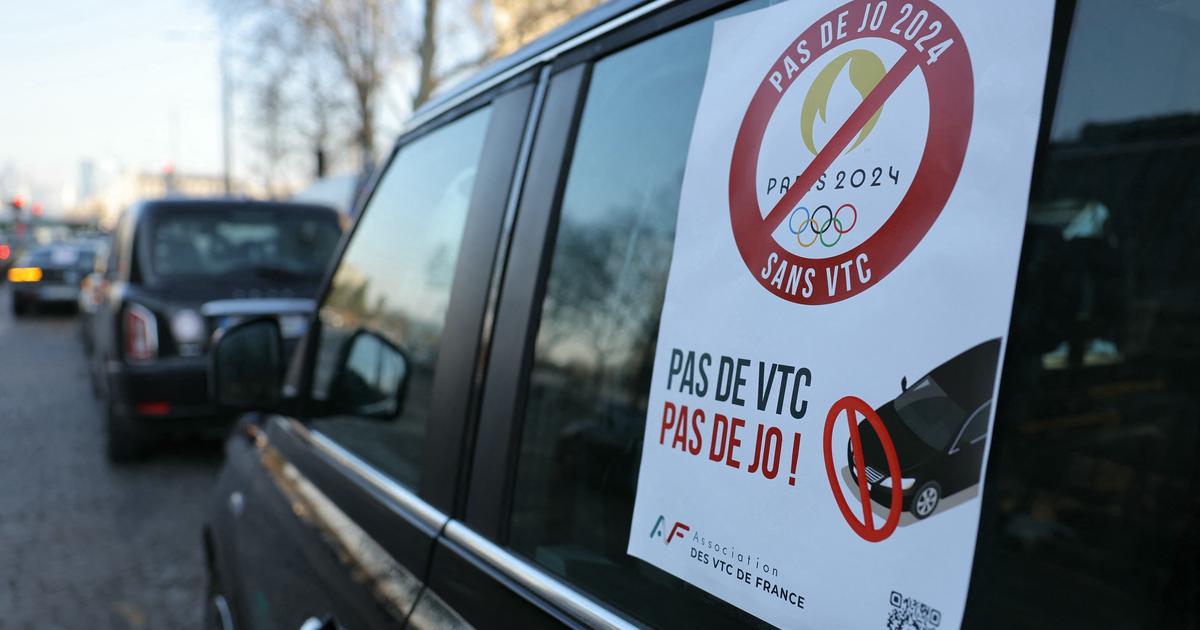VTC Drivers Step Up Pressure Ahead of Paris Olympic Games
With only 50 days remaining until the Paris Olympic Games, VTC (vehicle for hire) drivers are escalating their demands for better working conditions. Force Ouvrière INV, the leading VTC union in France since recent professional elections, held a late afternoon meeting this Tuesday with the Ministry of Transport to voice their concerns. The core demands revolve around the implementation of Olympic reserved lanes, which currently exclude VTCs, and the introduction of an 'Olympics bonus.'
Brahim Ben Ali, secretary general of FO INV, emphasized that VTC drivers are being sidelined, while other sectors involved in the Games like police, SNCF, and RATP workers have received compensation. The union is also calling for the cleansing of driver databases to eradicate 'fake drivers' operating with false licenses. Previous mobilizations, such as the December 2023 snail operation on the Paris ring road and another protest in January, underline the drivers' resolve to fight for their rights.
Next up for the government is handling the impending mobilization from VTC drivers, which they hope to avoid through ongoing discussions with representatives. But the drivers remain adamant – they want the same privileges as other sectors working throughout the Olympic Games.
Evictions and 'Social Cleansing' in Île-de-France
In parallel to the VTC drivers' issues, another stark issue looms over Île-de-France. A report by the collective 'Le Revers de la Médaille,' comprised of around 80 associations aiding vulnerable populations, accused authorities of using the Olympic spotlight to carry out systematic evictions, dubbed 'social cleansing.' They reported that evictions have intensified in the run-up to the Olympics, with 138 recorded over 2023-2024, compared to 122 in the prior period.
These evictions impacted at least 12,545 people, primarily migrants, which reflects a 38.5% increase from the previous period. Within this group, 3,434 were minors – a drastic increase. Evicted individuals were often relocated to temporary regional reception areas with promises of long-term accommodation, but many found themselves back on the streets due to administrative barriers.
The Human Costs of the Olympic Preparations
The report highlights the 'dehumanization' and lack of consideration for individual circumstances. Social assessments prior to evictions were virtually non-existent, leading to a broad-brush approach that failed to address specific needs. Alongside the evictions, sex workers faced 'harassment' and 'repeated administrative controls' aimed at removing them from public spaces. This expanded to migrants and drug users, with frequent expulsions from metro stations and heightened police presence, creating barriers to accessing support services.
The systemic operations targeting precarious populations have disrupted the essential work of grassroots organizations, painting a grim picture of the social impact of the upcoming Paris Olympics. As both VTC drivers and vulnerable communities continue to push back, the backdrop of the Games reveals broader social and economic tensions.
- The enforcement of Olympic reserved lanes is among the most contentious issues for VTC drivers, who feel marginalized compared to their taxi counterparts. This policy aims to streamline athlete and VIP transport but has neglected to include professional VTC services integral to the city’s transport ecosystem.
- The increase in evictions ahead of the Games exacerbates ongoing housing challenges in Île-de-France, where affordable housing is already in short supply. Migrants and people living in temporary shelters are often the first affected by these policies, mirroring similar trends seen in previous Olympic host cities.






